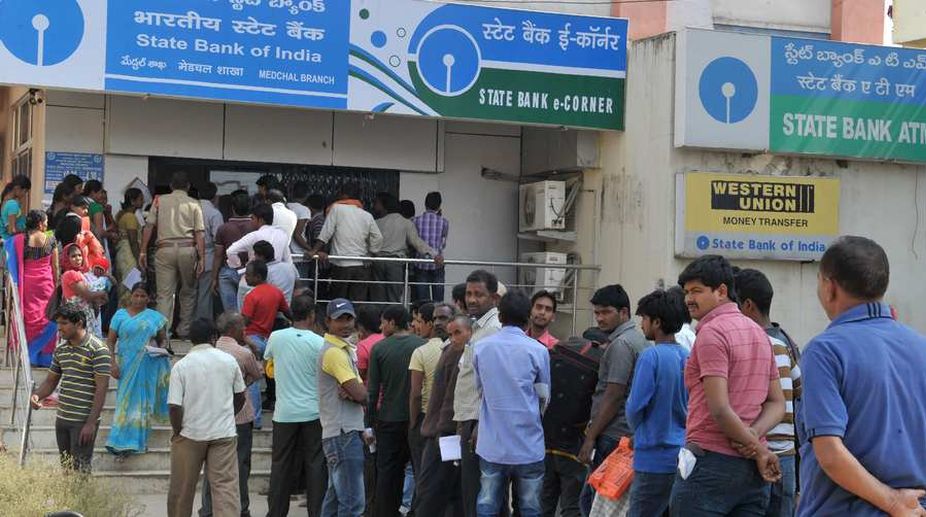85 breached
The Indian rupee has breached the significant psychological barrier of 85 against the US dollar, marking an all-time low amid a confluence of domestic and global pressures.

Representational Image (Photo: AFP/file)
An online petition against allowing government banks to use your deposits is spreading like wild fire on social media. The petition started by a Mumbai woman has so far got over one lakh signups by the depositors who fear their money lying in banks will be wiped out once the Financial Resolution and Deposit Insurance Bill, 2017, becomes law. The FRDI Bill is expected to come up in the Parliament’s winter session that starts from 15 December.
However, it is not yet clear what view the Parliament Committee, which is studying the Bill, will take. The Bill has also been opposed by the bank unions. All India Bank Employees Association said it was planning a strike if the government proceeded with the proposed legislation. The unions feel that a new authority proposed under the FRDI Bill will undermine the powers of Reserve Bank of India (RBI) as it gets sweeping powers to dismantle public sector financial institutions. RBI Governor Urjit Patel is likely to depose very soon before the Parliamentary committee on the issue.
Advertisement
The FRDI Bill proposes to create a legal framework to help financial institutions such as banks, insurance companies, rural and cooperative banks in case of insolvency.
Advertisement
What has got depositors worried is the controversial ‘bail-in’ provision which allows banks to use depositors’ money for resolution of bad loans due to corporate defaults to save banks and other financial institutions. So, in the event of collapse of a financial institution such as bank, its creditors and depositors will have to absorb some of the losses, as per Section 52 of the Bill. So far the ‘bailout’ measure is used in such cases and the government steps in to save banks.
Depositors worry that their hard earned savings left in the bank could be deducted or turned into fixed deposits without any prior notice. Currently, deposits upto Rs 1 lakh are insured by the Deposit Insurance and Credit Guarantee Corporation, while the rest can be forfeited in case of a bank failure. The new Bill has not specified the amount of insured deposits yet.
Looking at the public reaction, Finance Minister Arun Jaitley was quick to clarify last week that depositors’ money would be fully protected in the event of a bank failure. He said that the FRDI Bill is before the joint committee of Parliament and whatever are the recommendations of the committee, the government will consider them. Clarifying on the “rumours being spread about the Bill”, the finance ministry said, “the legal provisions in the Bill will ensure that the rights of the depositors are considered at an elevated level over unsecured creditors and dues owed to banks.” The government believes that the proposed law seeks to protect customers in times of financial distress.
The Bill also provides for the setting up of Financial Resolution Corporation (FRC), a rescue body which will decide if your money can be used in case the bank sinks. The Corporation in consultation with the regulator will take a decision whether it is necessary to bail-in a service provider and absorb the losses to enable it to carry out business and maintain market confidence. The bailouts have been facing the criticism that they incentivise the bank managements to take risk. The new Bill seeks to minimise the costs and time involved in resolving distressed financial institutions. People fear that the government’s responsibility of maintaining financial system insolvency will be shifted to depositors.
The Bill was first mentioned by Jaitley in his Budget speech in 2016-17. He had said that a systemic vacuum exists with regard to bankruptcy situations and that a comprehensive Code on Resolution of Financial Firms will be introduced in the Parliament. In March 2016, a committee was set up under the chairmanship of Ajay Tyagi, then additional secretary at the ministry of Finance, to draft the bill. Subsequently, the Financial Resolution and Deposit Insurance Bill, 2017, was introduced in the Parliament in August this year. The Bill was then referred to a joint committee of the Parliament that is likely to give its report in the winter session.
Advertisement